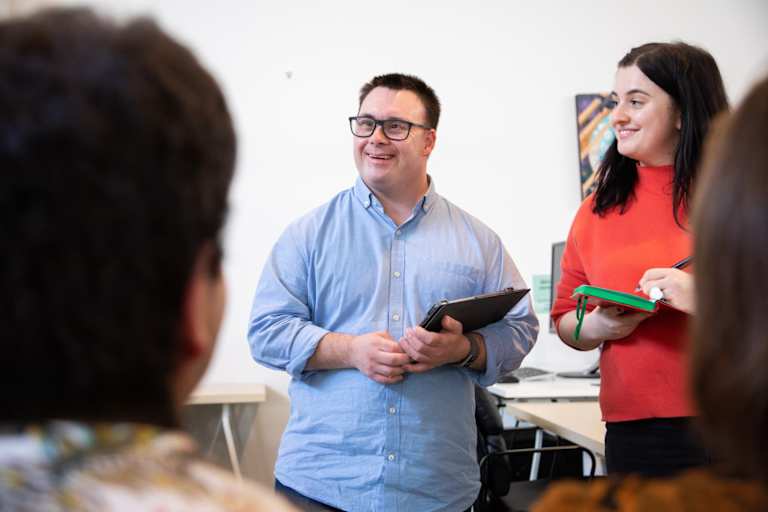Becoming a Sports Psychologist: Learn All About Entering the Field of Sports Psychology
Sports psychologists assist athletes and other performers. Discover the path to entering the field of sports psychology, key responsibilities, and sports psychologist salary ranges.Key Takeaways
- Sports psychologists help athletes, military personnel, and police officers boost performance, overcome mental health challenges, and manage issues like grief and burnout.
- To become one, pursue a bachelor’s in psychology, then a master’s and/or doctorate in sports psychology for specialized skills.
- Certification from groups like AASP is beneficial as licensure is often not required.
Do you want to help people reach their highest levels of performance? Sports psychologists merge kinesiology and psychology to help performers overcome anxiety and other obstacles for optimal performance. Military personnel, business professionals, and performance artists are among the individuals who benefit from the expertise of sports psychologists.
Beyond sports psychologists, there are various roles to pursue within this emerging sector — many of which do not require licensure. Explore the field of sports psychology, including educational prerequisites, licensure requirements, and expected salary ranges and job projections.
What Is a Sports Psychologist?
Sports teams, private psychology practices, schools, and rehabilitation centers hire sports psychologists. The American Psychological Association recommends that a sports psychologist should hold a doctoral degree and a state license.
Working in sports psychology mostly involves helping amateur and professional athletes, but the field can also support military personnel or police officers in reaching their optimal performance. Sports psychologists help people rehabilitate and overcome injuries or mental barriers.
These professionals also counsel clients who are dealing with issues such as grief, depression, or burnout through neurocognitive tests, assessments, and visualization techniques.
What are the Steps to Become a School Psychologist?
- 1
Earn a Bachelor’s Degree
Sports psychologists can begin their educational journey by earning a bachelor’s degree. The Association for Applied Sports Psychology (AASP) suggests undergraduates major in psychology or kinesiology with a minor in sport, exercise, or performance psychology. - 2
Earn a Master’s Degree
Many aspiring sports psychologists earn master’s degrees in sports psychology, counseling psychology, or clinical psychology. Studying at the master’s level allows you to develop specialized knowledge and skills. - 3
Gain Professional Experience
Sports psychology professionals gain hands-on experience through master’s practicums, internships, and employment opportunities. If you plan to pursue licensure as a psychologist, you will need two years of postgraduate supervised experience, which amounts to about 1,500-1,750 hours per year. - 4
Consider a Doctoral Degree
Working in sports psychology doesn’t always require a doctoral degree. However, pursuing a doctoral degree in sports psychology can help you qualify for state licensure and increased job opportunities. - 5
Consider Joining a Professional Association
When you join professional psychology associations like AASP, you can connect with other professionals and stay informed about trending research. AASP also offers certifications to demonstrate your specialized knowledge and skills to clients and employers.
Licensure for Sports Psychology Professionals
States do not specifically license sports psychologists. In fact, no state board regulates this niche area of psychology, requiring employers to set requirements for positions in sports psychology. Certain roles in sports psychology, such as clinical athletic trainer, mental performance consultant, or sport psychology consultant do not require a license.
Many sports psychology professionals opt to earn certification from professional organizations instead of pursuing licensure. That said, using the term “psychologist” in your job title requires obtaining general psychologist licensure from the state where you practice.
States may offer psychology associate licenses that allow candidates to complete the postgraduate clinical hours needed for a psychology license. Over two years, qualified psychologists need about 3,000 hours of supervised professional experience and passing scores on the Examination for Professional Practice in Psychology.
Sports Psychologist Salary and Job Outlook
According to the Bureau of Labor of Statistics (BLS), psychologists make a median annual wage of $92,740 as of May 2023. Clinical and counseling psychologists make the most working in New Jersey, where they earn an annual mean wage of $148,370, or an hourly pay of $71.33. Other high-paying states for clinical and counseling psychologists include Oregon, Rhode Island, Maine, and California.
For all psychology occupations, the BLS projects employment to grow by 7% from 2023-2033. The BLS does not specifically track data for sports psychologists. However, the BLS projects clinical and counseling psychology jobs to increase by 13% in that period.
| Occupation | Median Annual Salary |
|---|---|
| Industrial-organizational psychologists | $147,420 |
| Psychologists, all other | $117,750 |
| Clinical and counseling psychologists | $96,100 |
| School psychologists | $84,940 |
Frequently Asked Questions About Working in Sports Psychology
Sports psychologists use psychological assessments and mental health training to help individuals excel in various industries. They teach athletes and performers how to use cognitive and behavioral training techniques to set goals and manage their emotions. In their training roles, sports psychologists nurture talent and guide parents and support systems in implementing interventions.


